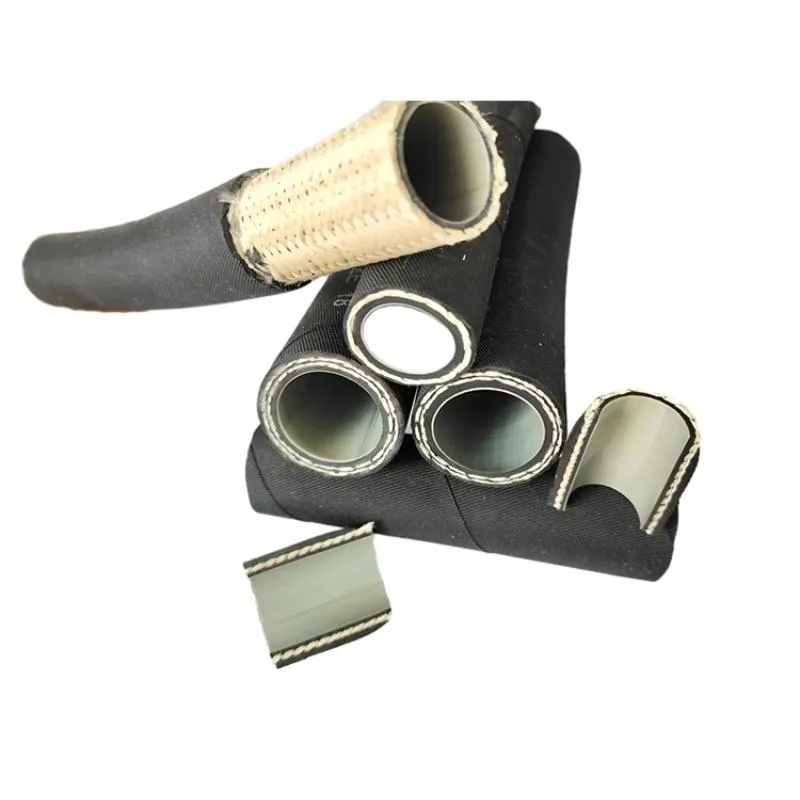Exploring the Benefits and Applications of Flexible Fuel Pipes in Modern Automotive Engineering
សីហា . 13, 2024 15:06 Back to list
Exploring the Benefits and Applications of Flexible Fuel Pipes in Modern Automotive Engineering
Understanding Flexible Fuel Pipes Importance and Applications
In the automotive and aerospace industries, flexible fuel pipes play a vital role in ensuring the efficient, safe, and reliable transportation of fuel. As vehicles and aircraft continue to evolve, the demand for components that can withstand various operational stresses increases, leading to the development of advanced flexible fuel pipes. These components are designed to offer a seamless flow of fuel while accommodating engine vibrations, temperature fluctuations, and pressure changes.
Structure and Materials
Flexible fuel pipes are typically made from a combination of materials, including rubber, plastic, and metal. The outer layer is often crafted from high-quality polymer materials that provide resistance to fuel, grease, and environmental factors. Underneath, a reinforcing layer made from braided fibers or steel ensures durability and strength, preventing rupture or leaks during operation. This multi-layer design allows the pipe to remain flexible, thereby accommodating the dynamic movements of vehicles without compromising fuel integrity.
Flexibility and Adaptability
One of the most significant advantages of flexible fuel pipes is their adaptability. Unlike rigid pipes, flexible alternatives can easily bend and twist, making them ideal for complex engine layouts and tight spaces. This flexibility not only makes installation easier but also significantly reduces the risk of joint failure—a common issue in rigid systems where stress concentrations can lead to cracks and leaks. Furthermore, flexible pipes can be resized and shaped to meet specific design considerations, providing engineers with the freedom to create more innovative product designs.
Safety and Reliability
flexible fuel pipe

Safety is paramount in fuel transportation systems. Flexible fuel pipes are rigorously tested for performance under various conditions to ensure they meet strict regulatory standards. They are designed to withstand extreme temperatures, pressure fluctuations, and exposure to different fuel types, including gasoline, diesel, and biofuels. As fuel systems become more complex—with the increasing use of alternative fuels and hybrid technologies—the need for dependable flexible fuel pipes becomes even more critical. Their ability to maintain integrity under varying conditions helps prevent leaks and potential hazards, contributing to the overall safety of the vehicle or aircraft.
Environmental Concerns
With growing concerns about environmental sustainability, the manufacturing and use of flexible fuel pipes have evolved to address these issues. Many manufacturers are now using recyclable materials and processes that minimize waste. Additionally, flexible fuel pipes can enhance fuel efficiency by ensuring a smoother flow of fuel, thus contributing to reduced emissions. This aligns with global efforts to create greener vehicles and aircraft, supporting both technological advancements and environmental responsibilities.
Future Trends
As technology advances, the future of flexible fuel pipes looks promising. Innovations in materials science may lead to the development of even lighter and more resilient polymers, enhancing flexibility and durability. Furthermore, advancements in sensor technology could allow for real-time monitoring of fuel flow and pipe integrity, ensuring proactive maintenance instead of reactive repairs. The integration of smart technology within fuel systems could transform how flexible fuel pipes are manufactured and utilized, making them integral components of modern transportation.
Conclusion
Flexible fuel pipes represent a critical advancement in fuel transportation technology. Their unique properties of flexibility, safety, and adaptability not only enhance the performance and reliability of vehicles but also contribute to environmental sustainability. As industries continue to innovate and evolve, the importance of flexible fuel pipes will undoubtedly grow, shaping the future of transportation solutions worldwide. Whether in cars, trucks, or aircraft, these versatile components are essential for meeting the demands of the 21st century and beyond.
